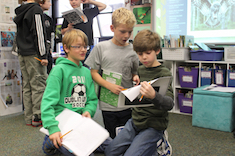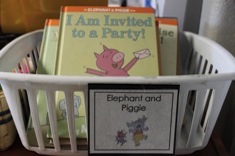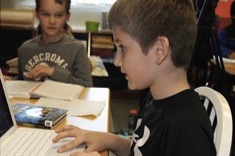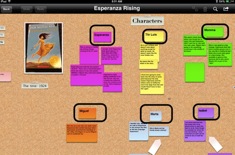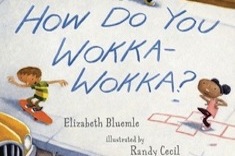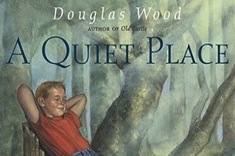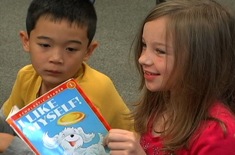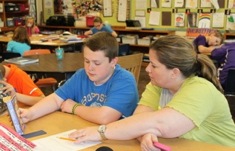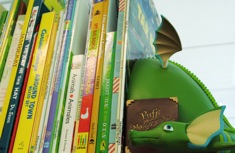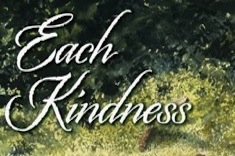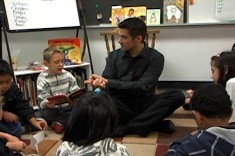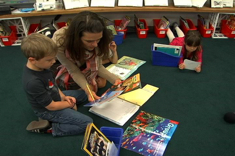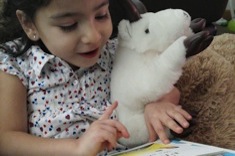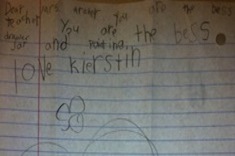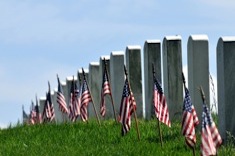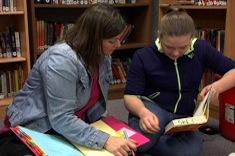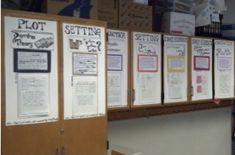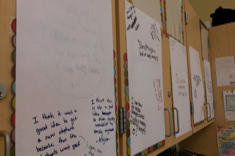Teaching Reading
Our contributors lead reading workshops in classrooms with creative flair. Over the past 12 years, we've filled our site with loads of suggestions, tools, and tips for using engaging books throughout the curriculum to hook kids on reading. Here is where you will find many stories of successful and not-so-successful workshop days, and what we learned from them. We bring these stories to life through hundreds of video examples.
Latest Content
Top 10 Intermediate Books for Boys
Katherine Sokolowski finds many of the boys in her classroom love to read about violence, weapons, and crude humor. She challenges teachers to appreciate boys’ interests and set some of our own criticism aside.
Jumping Off the Buzz Wagon: The Value of Reading Logs
Are you ready to ditch your reading logs? Not so fast. Franki Sibberson explains why she still uses them in her third-grade classroom.
Reader Response: Keeping It Real
Cathy Mere finds many authentic ways for her first graders to share reading insights.
Fluency and Comprehension Conference
Aimee Buckner confers with fourth grader Amanda about her reading comprehension and fluency, encouraging her to use a sticky note to track thinking around a focus question.
Reading Passports
Justin Stygles develops reading passports as an alternative to traditional reading logs with his fifth- and sixth-grade students.
Books for Studying Illustration with First Graders
Katie DiCesare has suggestions for books to support an illustration unit early in the year.
Reader Response in the Digital Age
Franki Sibberson has suggestions for moving to more digital response options with students.
Digital Boards for Formative Assessment
Katharine Hale has moved much of her reading response to digital boards, which are also a useful tool for formative assessment.
Books for Brain Breaks
Mandy Robek compiles a list of her favorite books for brain breaks with young learners.
A Strong Foundation: Books and Media for Launching Literacy Workshops
Help students transition back to school with minilessons that give children a strong sense of the purpose of literacy workshops.
First Shared Text: Fishing for Many Meanings with Adolescents
Christy Rush-Levine introduces her middle school students to the complexity of reading on the first day of school.
Second-Grade Reading Share
Sean Moore leads a second-grade whole-class reading share early in the year. This quick video shows that this instruction time is as much about establishing social norms as talking about reading.
“I Used To, and Now I”: An Early Year Minilesson
Franki Sibberson finds an “I Used to and Now I” format helps her third-grade students understand how technology is changing reading habits.
Launching Reading Workshop: Mentor Texts
Mandy Robek shares her favorite texts to use early in the year with young students to introduce them to everything from places to read to how to handle books.
The First Days of Reading and Writing Workshops
Katherine Sokolowski explains how she spends her time during the first days of literacy workshops in her fifth-grade classroom.
Using Summer Reading as Bookends for the School Year
Karen Terlecky has advice for using summer reading for launching and closing the school year to build community and enduring connections with students.
Fourth-Grade Reading Conference: Focusing While Reading
Aimee Buckner helps fourth grader Isaiah focus his reading early in the year in this quick conference.
30 Books in 30 Days
Justin Stygles uses the 30 Books in 30 Days project to introduce his sixth graders to a wide variety of authors and genres.
Character Through Literature Early in the Year
Katherine Sokolowski finds that the beginning of the year is the best time to build community with a unit on character and morals through literature.
The Rapid Reader: Tutoring Esther
Max works with Esther, a third grader who takes pride in being a rapid reader and rarely pauses to make sense of the text.
Sticky Notes Small Group
Sean Moore meets with a group of second graders to remind them how to use sticky notes strategically while they are reading.
Book Choice Conference in Kindergarten
Mandy Robek has a book choice conference with Drew. This is the first installment in her kindergarten conferring series.
Animal Backpacks and Literacy Joy
Kelly Petrin finds animal backpacks are a wonderful tool for building literacy skills in young learners, as well as the home/school connection.
Kindergarten Moments Count: Morning Message
Keri Archer writes about the importance of morning message for kindergartners.
A Booklist for Memorial Day
Sarah Klim’s latest booklist includes titles for honoring those who serve on Memorial Day.
Final Literacy Contracts: Student-Generated Themes
Megan Ginther and Holly Mueller close out the year with their final literacy contracts. It’s time for students to take ownership of their learning, so they select the themes.
Capturing the Elementary Years with Photo Essays
Justin Stygles helps his sixth graders prepare to move to middle school with a photo essay assignment in the last weeks of school.
Home and School, Fiction and Nonfiction: Eighth-Grade Conference
Katie Baydo-Reed confers with an eighth-grade student moving between fiction and nonfiction texts, and gives advice about which books are appropriate for home reading.
Reader Response Anchor Charts
Christopher Carlson describes why and how he made reader response anchor charts more rigorous and thoughtful in his fifth-grade classroom.
Nonfiction Graffiti Walls
Katie Doherty uses nonfiction graffiti walls as a tool for building response skills and community with her sixth-grade students.
Browse Content By
Type
Category
- Assessment Tools
- Big Fresh Archives
- Booklists
- Choice Numeracy
- Classroom Design
- Common Core
- Community Building
- Conferring
- Content Literacy
- Digital Literacy
- English Language Learners
- Equity
- Family Relations
- Free Samples
- Guiding Groups
- Leadership
- Literacy Coaches
- Mentor Texts
- Minilessons
- New Teacher Mentors
- Podcasts
- Poetry
- Quote Collections
- Reading Strategies
- Self Care
- Struggling and Striving Learners
- Talking and Listening
- Teacher Study Groups
- Teaching Reading
- Teaching Writing
- Word Study and Vocabulary
Author
- Melissa Quimby
- Nawal Qarooni
- Gwen Blumberg
- Julie Cox
- The Lead Learners
- Hannah Tills
- Josie Stewart
- Ruth Metcalfe
- Mallory Messenger
- Becca Burk
- Jodie Bailey
- Vivian Chen
- Mary Brower
- Tiffany Abbott Fuller
- Stephanie Affinito
- Ruth Ayres
- Leigh Anne Eck
- Heather Fisher
- Shari Frost
- Julie Johnson
- Suzy Kaback
- Gigi McAllister
- Shirl McPhillips
- Melanie Meehan
- Cathy Mere
- Debbie Miller
- Tara Barnett and Kate Mills
- Tammy Mulligan
- Dana Murphy
- Bitsy Parks
- David Pittman
- Brenda Power
- Heather Rader
- Matt Renwick
- Mandy Robek
- Christy Rush-Levine
- Gretchen Schroeder
- Jen Schwanke
- Brian Sepe
- Katherine Sokolowski
- Stella Villalba
- Jennifer Vincent
Grade Level
Choice Literacy Membership
Articles
Get full access to all Choice Literacy article content
Videos
Get full access to all Choice Literacy video content
Courses
Access Choice Literacy course curriculum and training

